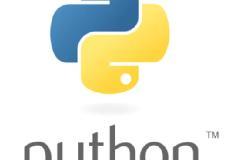I have 5+ years of Real-time experience in the IT Industry having key skills as Python. I have introduced the Python course as mentioned below
The Python course goal is to make students improve their Python knowledge and become experts as per their Job needs. I am open to add more topics and discuss accordingly
Python Syllabus for beginners
Starting with Python
- Features and Advantages of Python
- Working principle of Python interpreter
- Installation of Python
- Installation of PyCharm IDE
- Installation of Anaconda
Python Virtual environment
- Use of virtual environment
- Steps to create virtual environment
- Activate / Deactivate virtual environment
- Creation of New Virtual environment using PyCharm IDE
First Python Program
- Run Python Program
- Assign value to python variables
- Assign one value to Multiple variables
- Assign Multiple values to Multiple variables
- Local variables
- Global variables
PEP8 Standards
- What is PEP8?
- What are PEP8 Guidelines?
- What are Programming Errors?
- Types of Programming Errors
- Syntax Errors
- Run time Errors
- Logical Errors
Print () Function
- print () function format using f-string
- print () function format using format () method
- print () function using sep parameter
- print () function using end parameter
Python Fundamentals
- Python Keywords
- Python Identifiers
- Boolean data type
- Type casting using type ()
- Isinstance () method
- Id () function
- help () function
- dir () function
- len () function
- range () function
- enumerate () function
- eval () function
- Input and output Function
- Shallow copying (vs) Deep copying
Python Operators
- Arithmetic Operators
- Relational Operators
- Assignment Operators
- Logical Operators
- Bitwise Operators
- Membership Operators
- Identify Operators
Program Control Flow
- Conditional Statements
- If condition
- If – Else condition
- ElIf condition
- Loops
- Finite Loops
- For loop
- Infinite Loops
- While Loop
- Loop Control Statements
- break
- continue
- pass
- Coding Exercises
- Finite Loops
Numbers
- integer, int ()
- float, float ()
- complex, complex ()
- round () function
- max ()
- min ()
- abs ()
- Fractional numbers
- Math module
Strings
- What is String?
- Define a String
- Creating a String
- Access characters in String
- Change or delete String
- Python String Operations
- Concatenation
- Iterating
- Membership Test
- Enumerate ()
- Slice ()
- Format () Method for formatting Strings
- String methods
- lower ()
- upper ()
- join ()
- split ()
- strip ()
- find ()
- replace ()
- index ()
- isalnum ()
- isalpha ()
- isdigit ()
- startswith ()
- endswith ()
- Coding exercises
Lists
- What is List?
- Define a List
- Creating a List
- Size of List
- Adding List Elements
- append () method
- insert () method
- extend () method
- Access the List elements
- Remove the List elements
- using remove () method
- using pop () method
- using clear () method
- Slicing of a List
- Loop Lists
- List Comprehension
- List Operations
- Find the length of list
- Iterate over list
- Concatenation of lists
- List membership
- List Methods
- append ()
- extend ()
- insert ()
- remove ()
- pop ()
- clear ()
- index ()
- count ()
- sort ()
- reverse ()
- copy ()
- Coding exercises
Tuples
- What is Tuple?
- Define a Tuple
- Creating a Tuple
- Accessing of Tuple elements
- Concatenation of Tuples
- Slicing operations
- Delete a Tuple
- Tuple built-in methods
- index ()
- count ()
- Coding Exercises
Set
- What is Set?
- Define a Set
- Creating a Set
- Adding Elements to Set
- add () method
- update () method
- Accessing a Set
- Remove set elements
- remove () method
- discard () method
- pop () method
- clear () method
- Frozen sets
- Set Methods
- add ()
- remove ()
- clear ()
- copy ()
- pop ()
- update ()
- union ()
- difference ()
- intersection ()
- issubset ()
- issuperset ()
- Coding Exercises
Dictionary
- What is Dictionary?
- Define a Dictionary
- Access Items
- Get keys
- Get Values
- Get Items
- Check if Key Exists
- Change Items
- Change Values
- Update Dictionary
- Add Items
- Adding Items
- Update Dictionary
- Remove Items
- pop () method
- popitem () method
- del
- clear ()
- Loop Dictionaries
- Loop through a Dictionary
- Copy a Dictionary
- copy ()
- dict ()
- Nested Dictionaries
- Dictionary Methods
- clear ()
- copy ()
- fromkeys ()
- get ()
- items ()
- keys ()
- pop ()
- popitem ()
- setdefault ()
- update ()
- values ()
- Coding Exercises
Function
- What is Function?
- Define a Function
- Creating a Function
- using def keyword
- Calling a Function
- Arguments
- Arbitrary Arguments (*args)
- Keyword Arguments (kwargs)
- Arbitrary Keyword Arguments (**kwargs)
- Parameters
- Default Parameter Value
- pass Statement
- Recursive Function
- Coding Exercises
Modules & Packages
- What is Module?
- Create a Module
- Use a Module
- Variables in Module
- Using the dir () Function
- Import a Module
- Import mymodule
- Import mymodule asmm
- Import From module (using from)
- Python Packages
- Creating a Package
- Importance of __init__.py
- Import Modules from Package
- Import package_name. module name
- from mypckg import mod
- from mypckg.mod1 import preprocess_data
- Coding Exercises
Lambda Function
- map () Function
- filter () Function
- reduce () Function
- Lambda Function
- Why use Lambda Function?
- Lambda with map ()
- Lambda with filter ()
- Lambda with reduce ()
Iterators
- What is Python Iterator?
- Creation of Python Iterator
- __iter__(iterable)
- next (__next__)
- implicit creation of iterators
- For -loop and Iterators
Generators
- What is Python Generator?
- Define a Generator- Function
- Generator – object
- Yield keyword
Decorators
- Assigning Function to Variables
- Defining Functions inside other Functions
- Passing Functions as Arguments to other Functions
- Functions returning other Functions
- What is Decorator?
- Creating a Decorator
- Applying Multiple Decorators to a Single Function
- Accepting Arguments in a Decorator Functions
- Debugging Decorators
Object Oriented Programming
- attributes
- behavior
- Class
- Object
- Constructors
- Methods
- class methods
- static methods
- method overloading
- method overriding
- Encapsulation
- Inheritance
- Types of Inheritance
- Single Inheritance
- Multiple Inheritance
- Multilevel Inheritance
- Hierarchical Inheritance
- Polymorphism
- Abstraction
Exception Handling
- What is Exception?
- What is Error ?
- Difference between Errors and Exceptions
- Catching Exceptions
- Try and Except Statement
- Finally, Keyword
- Raising Exception
File Handling
- Files
- Open () Function
- Access Modes
- read () mode
- closing Files
- write () mode
- with clause
- File methods
- readline ()
- readlines ()
- writeline ()
- writelines ()
- seek ()
- flush ()
JSON
- What is JSON
- Converting from JSON to Python
- Parsing JSON
- loads ()
- Return JSON Object
- load ()
- Reading JSON file
- Convert from Python to Json
- Converting to Json String
- dumps ()
- Writing to a JSON file
- dump ()
- Converting to Json String
- Parsing JSON
Project work
- Building a complete Python project
- Applying best practices learned throughout the course









